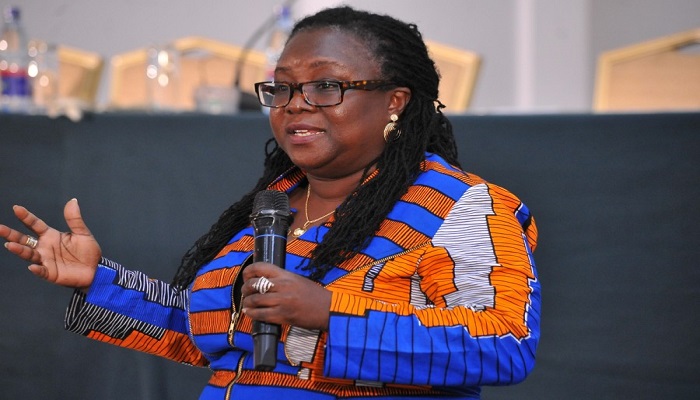The media must be supported to overcome the current economic challenges to enable it to continuously execute its role in the consolidation of the country’s democracy.
Ghanaian journalists work in challenging circumstances and lack the resources to provide the kinds of robust coverage necessary to perform some of their core functions.
Delivering an inaugural lecture at the University of Ghana (UG) on Thursday, April 29, 2022, Professor Audrey Gadzekpo, Former Dean, School of Information and Communication Studies, UG, said the Covid-19 pandemic had put the media under strain and “needs a bailout.”
“…as a key pillar of democracy, the media sector is too important to fail. It needs a bailout on several fronts,” she said.
“We must remember that the media is a public good and must be supported to survive. If for nothing else, they must survive in the interest of democracy,” she added.
Prof. Gadzekpo said in the wake of the seeming economic challenges, media businesses must adopt new models and find innovative ways to sustain their operations.
“The old model where commercial advertising is the primary source of media funding is obviously atrophied. Other sustainable types of funding from private philanthropy to private subsidies must be explored,” she said.
Prof. Gadzekpo, a Professor of Communication Studies, said media owners must also invest in building the capacities of their employees regularly and not solely rely on stakeholders to build the capacities of their journalists.
She observed that many journalists are “inexperienced, lacking requisite knowledge on the areas they cover and do not have a strong sense of history.”
Prof. Gadzekpo said in spite of the challenges facing the media, journalism practice in Ghana demonstrates a lot of potential.
Making reference to an Afrobarometer report, which indicated that trust in the media among the public has eroded, she said the media must conduct a self-introspection of its performance and work to address the problem.
“Without popular support for civic freedom, there is the risk that authoritarian-minded government would place further restrictions aimed at weakening the media’s ability to hold them accountable.
“If the media is expected to be guardians of democracy, they themselves must deepen their commitment to democratic ideals,” she said.
The media must work in support of public interest and in support of democratic development, she added.
Prof. Gadzekpo said efforts to improve media professional standards of ethics must be strengthened to ward off “hostile external regulations.”
She called on media companies and media associations such as the Ghana Journalists Association (GJA) and the Ghana Independent Broadcasters Association (GIBA) to encourage self-regulation and hold their employees and employers more accountable.
Latest Stories
-
NPP must win back Adentan seat in 2024 polls – Obeng Fosu
8 mins -
PPA Clarification: The dark side of the World Bank’s ‘giveaways’ in Ghana by Bright Simons
1 hour -
Blinken says China helping fuel Russian threat to Ukraine
2 hours -
MHA declares May as Purple Month for Mental Health Awareness
2 hours -
WAEC arrests former headmaster over illegal students registration
2 hours -
MeToo founder Tarana Burke defiant after Harvey Weinstein ruling
2 hours -
Be alert, insist on decent messages – Dwumfour tells media
3 hours -
Father jailed 10 years for burning daughter’s genitals with hot cutlasses
3 hours -
I aim to help Ghana produce world-class athletes – Asamoah Gyan
3 hours -
Ashanti Regional Minister alleges sabotage in electricity supply
3 hours -
2024 Elections: Dampare urges Ghanaians to prioritise patriotism and display maturity
3 hours -
‘Let it rot’ campaign hits fish prices in Egypt
3 hours -
Otumfuo chalks 25 years on Golden Stool today
4 hours -
Saudi could get first Miss Universe contestant this year
4 hours -
Ghana Shippers’ Authority initiates steps to sign Service Level Agreements with stakeholders
4 hours

